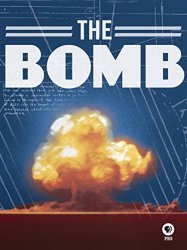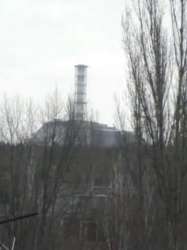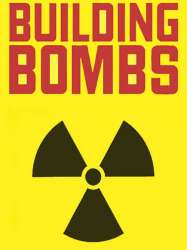American Threnody is a american film of genre Documentary
American Threnody (2007)

If you like this film, let us know!
- Infos
- Casting
- Technical infos
- Photos
- Videos
- Film quotes
- Characters
- Music
- Awards
American Threnody is a 2007 American documentary film, directed by Robert Rex Jackson. It concerns the Maxey Flat Low Level Radioactive Waste facility in eastern Kentucky. The facility was built on the former site of the farm where the filmmaker's grandfather was born. The film examines the impact of the facility on the community and examines the persistent containment problems that have been the subject of media coverage. Current methods of storing and disposing of transuranic isotopes and how they differ from the techniques used at Maxey Flat are also explored.
Comments
Leave comment :
Suggestions of similar film to American Threnody
There are 8971 with the same cinematographic genres, 1033 films with the same themes (including 62 films with the same 4 themes than American Threnody), to have finally 70 suggestions of similar films.If you liked American Threnody, you will probably like those similar films :

The Bomb (2015)
Genres Documentary, Historical
Themes Environmental films, Documentary films about environmental issues, Documentary films about war, Documentary films about historical events, Documentary films about nuclear technology, Documentary films about technology
Actors Jonathan Adams (acteur britannique)
Rating75%





Comment vivre avec une invention capable de détruire la planète ? S'appuyant sur de spectaculaires archives récemment restaurées et rendues publiques, une captivante plongée dans l'histoire de la bombe atomique, de sa conception à la manière dont elle a changé le monde.

White Horse (2008)
, 18minutesOrigin USA
Genres Documentary
Themes Environmental films, Documentary films about environmental issues, Documentary films about historical events, Documentary films about nuclear technology, Documentary films about technology, Disaster films
Rating69%





The beginning of the film starts with DeLeo, Bisson and Surkov driving through Kiev. This is introduced as the beginning of their journey to Pripyat, near the ground zero of Chernobyl. Once they reach the outpost outside the exclusion zone, we see that the area surrounding Pripyat is very deserted and dark. Once in the city, we see Surkov's old home, which he explains has been robbed of almost all its belongings due to looters. Yet there are still some mementos in the old apartment, including the wallpaper he and his mother put up, the training bars his father bought for him, an old rubber ball he claims was his favorite and a white horse poster plastered on the wall of his old bedroom. The pain he feels is evident. When he sees an old calendar on a door, he rips a large portion off, claiming "the year ended on April 26th". Outside the door of the apartment, he remarks how he wishes he could stay forever. He throws his old ball through the door and walks out of the apartment complex. The film ends with Surkov snapping some twigs in an old courtyard and then an image of the car they traveled in leaving the exclusion zone.

The Day the Sun Fell (2014)
, 1h18Genres Documentary, Historical
Themes Environmental films, Seafaring films, Transport films, Aviation films, Documentary films about environmental issues, Documentary films about war, Documentary films about historical events, Documentary films about nuclear technology, Documentary films about technology, Political films, Documentary films about World War II
Rating75%






Building Bombs (1991)
, 54minutesDirected by Mark Mori
Origin USA
Genres Documentary
Themes Environmental films, Documentary films about environmental issues, Documentary films about war, Documentary films about historical events, Documentary films about nuclear technology, Documentary films about technology
Actors Jane Alexander
Rating62%






The Russian Woodpecker (2015)
, 1h20Origin USA
Genres Documentary, Historical
Themes Environmental films, Documentary films about environmental issues, Documentary films about historical events, Documentary films about nuclear technology, Documentary films about technology, Disaster films
Rating66%





The films focuses on Fedor Alexandrovich's research into the cause of the Chernobyl nuclear disaster in Ukraine and its potential connection to a Soviet Cold War-era structure, the Duga over-the-horizon radio antenna. His investigation is interrupted and impacted by the 2014 EuroMaidan uprising, which eventually led to the ouster of the pro-Russian president Viktor Yanukovych.

The Mushroom Club (2005)
Origin USA
Genres Documentary
Themes Environmental films, Seafaring films, Transport films, Aviation films, Documentary films about environmental issues, Documentary films about war, Documentary films about historical events, Documentary films about nuclear technology, Documentary films about technology, Political films, Documentary films about World War II
Rating66%






Ashes to Honey (2010)
, 1h56Directed by Hitomi Kamanaka
Genres Documentary
Themes Environmental films, Documentary films about environmental issues, Documentary films about nuclear technology, Documentary films about technology
 , 1h26
, 1h26Directed by Dennis O'Rourke
Genres Documentary
Themes Environmental films, Documentary films about environmental issues, Documentary films about war, Documentary films about historical events, Documentary films about nuclear technology, Documentary films about technology
Rating78%






Genres Documentary
Themes Environmental films, Seafaring films, Transport films, Documentary films about environmental issues, Documentary films about historical events, Documentary films about nuclear technology, Documentary films about technology, Disaster films, Films about earthquakes
Rating67%





Surviving the Tsunami brings together social, environmental, and personal perspectives of the national catastrophe of the Fukushima nuclear meltdown. In the documentary, Kyoko Miyake travels back to her hometown in Namie, Fukushima, to revisit her old life and assess the trauma still lingering from the disaster. She revisits Namie, her mother's hometown and meets the people who depended on the success of the nuclear plant for their livelihood. The film also follows Bunsei Watanabe and Kyoko Miyake's Aunt Kuniko, two people who hope for the rejuvenation of Namie, despite the disaster that has occurred. Despite having lost family, friends, and jobs due to the meltdown and subsequent fear of the contamination zone, these two individuals are determined to rebuild their towns and neighborhoods and bring back the sense of community they once had. The film follows the residents of Namie, with emphasis on the experiences of Aunt Kuniko, as they come to terms with the reality of living in or near the "radiation zone" left in the wake the plant's nuclear meltdown. Surviving the Tsunami offers a different perspective on Japanese culture, national identity, human adaption, and global nuclear energy and proliferation.

3.11: Surviving Japan (2013)
, 1h30Directed by Simon Hilton
Genres Documentary
Themes Environmental films, Seafaring films, Transport films, Documentary films about environmental issues, Documentary films about historical events, Documentary films about nuclear technology, Documentary films about technology, Disaster films, Films about earthquakes
Rating81%





The film spans from March 11, 2001 to September 19, 2011, starting with Noland's own experience in the Tōhoku Earthquake and tsunami, Fukushima Daiichi nuclear disaster followed by volunteer activities in Ofunato
 Connection
Connection